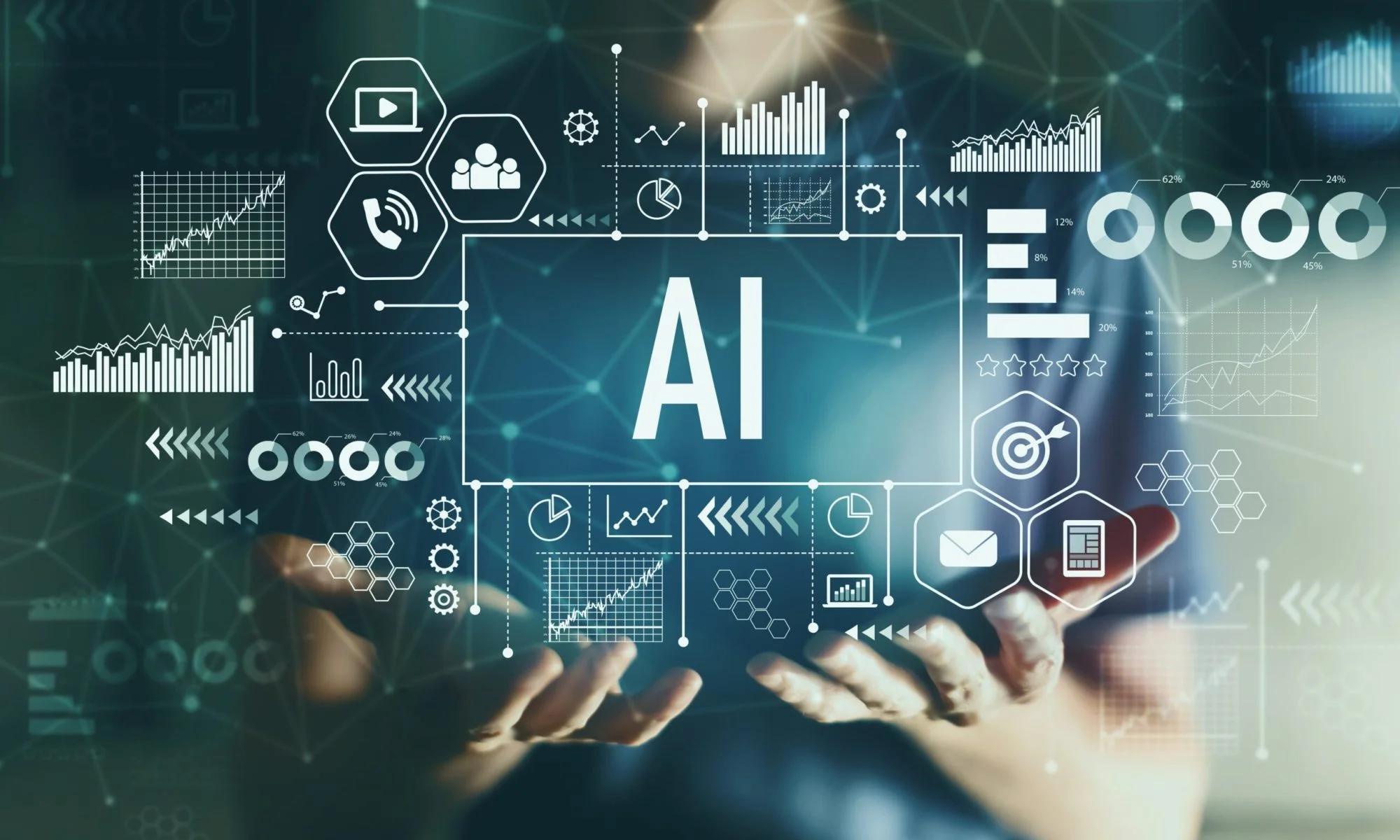Artificial Intelligence (AI) is revolutionizing business practices across various industries by enhancing efficiency, optimizing operations, and offering unparalleled insights into both market and customer behaviors.
This transformative technology leverages complex algorithms and sophisticated data analysis techniques to solve problems that traditionally required human intelligence. As a result, businesses are not only able to automate processes but also to innovate and adapt to rapidly changing markets.
Definition and Scope of AI in Modern Business Environments
AI refers to the simulation of human intelligence in machines that are programmed to think like humans and mimic their actions. In modern business environments, AI is utilized in several forms, including machine learning, deep learning, natural language processing (NLP), and robotics.
These technologies are deployed across various domains such as customer service, where chatbots handle inquiries and issues round-the-clock; in sales and marketing, where AI algorithms predict customer buying patterns; and in manufacturing, where robots and automated systems streamline production processes.
Overview of AI Technologies Commonly Used in Business
In the business context, common AI technologies include machine learning algorithms that automate data analysis, enabling businesses to make informed decisions quickly. For example, predictive analytics is used extensively to forecast sales volumes based on historical data and current market trends.
Another prevalent technology, natural language processing, helps in analyzing customer feedback and sentiment on social media platforms, allowing companies to enhance their customer service strategies effectively.
Identifying Workflow Bottlenecks
AI excels in identifying and addressing inefficiencies within business processes, enabling companies to enhance productivity and reduce costs. By analyzing workflow data, AI can highlight areas of delay and propose streamlined approaches.
How to Identify Areas in Your Workflow That Can Benefit From AI
To identify bottlenecks, businesses can utilize AI-driven analytics tools that monitor and evaluate the performance of different workflow segments. By using these tools, companies can pinpoint inefficiencies such as prolonged processing times or high rates of errors in specific departments, which can then be targeted for AI interventions.
Case Studies of Businesses That Have Successfully Implemented AI to Solve Specific Problems
For instance, a global retailer used AI to analyze customer purchase behaviors and supply chain logistics, which allowed them to optimize their inventory management and reduce overstock situations. This not only enhanced their operational efficiency but also resulted in significant cost savings.
For more information, Free video edit click here: DeepBrain AI
AI-Driven Automation
Automating routine and repetitive tasks with AI is one of the key benefits for businesses, allowing human resources to focus on more strategic activities.
Benefits of Automating Routine Tasks Using AI
AI-driven automation in areas like data entry and analysis, customer inquiries, and inventory management reduces the burden on employees and minimizes human errors, thereby enhancing the overall efficiency and productivity of businesses.
Examples of AI Tools That Can Automate Tasks
Specific AI tools such as RPA (Robotic Process Automation) platforms automate tasks like data entry, invoice processing, and HR operations. For example, tools like Blue Prism and UiPath enable businesses to automate their backend processes, significantly speeding up operations and reducing manual labor costs.
Enhancing Decision-Making With AI
AI significantly contributes to enhanced decision-making in business by providing data-driven insights that are precise and timely.
How AI Can Provide Data-Driven Insights to Improve Strategic Decisions
By integrating AI with their data systems, companies can obtain real-time insights and forecasts based on comprehensive data analysis. This allows for better strategic planning and risk management, particularly in dynamic markets.
Tools and Platforms That Offer AI-Powered Analytics and Forecasting
Platforms like Tableau and Microsoft Power BI incorporate AI to enhance data visualization and predictive analytics, providing businesses with the tools to make informed decisions based on robust data insights.
AI in Competitive Analysis
AI significantly enhances competitive analysis by providing detailed insights into market dynamics and competitor strategies, which helps businesses maintain and improve their market position.
Utilizing AI to Gather and Analyze Competitor Data
AI technologies enable businesses to automatically collect and analyze large volumes of data about competitors. For example, AI-powered tools can track competitors’ product prices, marketing strategies, and customer reviews in real-time, allowing companies to respond quickly to market changes and capitalize on opportunities.
Predictive Analytics for Staying Ahead of Market Trends and Competitor Moves
Predictive analytics tools use AI to forecast future market conditions based on historical data and trends. This allows businesses to anticipate changes in consumer preferences and competitor actions, enabling them to proactively adjust their strategies. Tools like SAS Advanced Analytics and IBM Predictive Analytics provide such capabilities, offering a crucial competitive edge.
Improving Customer Experience With AI

AI transforms the customer experience by personalizing interactions and automating service processes, thereby increasing customer satisfaction and loyalty.
Personalization and AI-Driven Customer Service
AI facilitates highly personalized customer experiences by analyzing individual customer data and preferences to tailor interactions. This can range from personalized product recommendations on e-commerce sites to customized content delivery on digital platforms.
Chatbots, Virtual Assistants, and AI-Based CRM Systems
AI-powered chatbots and virtual assistants handle routine customer queries efficiently, reducing response times and freeing up human agents for more complex issues. AI-based CRM systems like Salesforce and Zoho CRM integrate AI to manage customer interactions, helping businesses optimize their customer relationship strategies and increase engagement.
AI in Marketing and Sales
AI revolutionizes marketing and sales by enabling more targeted, efficient, and effective strategies, which significantly improve outreach and revenue generation.
Leveraging AI for Targeted Marketing Campaigns and Sales Forecasting
AI algorithms analyze customer data to identify patterns and preferences, which can be used to tailor marketing campaigns to specific segments, increasing their effectiveness. Additionally, AI tools predict sales trends, helping companies adjust their strategies in real-time.
For instance, DraftKings Sportsbook used artificial intelligence to recognize customers’ habits to tailor their DraftKings North Carolina Promos to entice clients to continue getting in on the action. This targeted approach helps entice clients to continue engaging with their offerings, enhancing customer retention and satisfaction.
Tools for Automating and Optimizing Marketing Strategies
Digital marketing platforms such as HubSpot and Adobe Marketing Cloud use AI to automate and optimize marketing campaigns, ensuring maximum impact by adjusting strategies based on real-time data and customer interactions.
AI for Supply Chain Optimization
AI improves supply chain management by enhancing efficiency, reducing costs, and mitigating risks associated with logistics and inventory management.
How AI Can Streamline Supply Change Management and Logistics
AI applications in supply chain management include route optimization for delivery vehicles, predictive maintenance for equipment, and automated inventory management systems, all of which contribute to smoother operations and reduced operational costs.
Examples of AI Applications in Demand Forecasting and Inventory Management
AI-driven tools like Llamasoft and ClearMetal predict demand patterns and optimize inventory levels accordingly, helping businesses reduce excess stock and shortages, which in turn enhances operational efficiency.
AI-Powered Talent Management
AI is changing the landscape of HR by automating recruitment processes, enhancing employee engagement, and improving performance evaluations.
Using AI for Recruitment, Employee Engagement, and Performance Management
AI-driven recruitment tools like HireVue use machine learning algorithms to screen candidates, predicting which applicants are most likely to succeed in a role. AI also facilitates personalized employee engagement programs and automates performance tracking to ensure optimal workforce management.
AI Tools for Training and Development Programs
AI platforms such as Coursera and Udemy offer personalized learning experiences that adapt to the individual’s learning pace and style, which enhances employee skills more effectively and aligns with corporate goals.
Challenges and Ethical Considerations
Implementing AI presents unique challenges and ethical considerations that businesses must manage to ensure successful integration.
Potential Challenges in Implementing AI Solutions
Challenges include managing data quality, dealing with the complexities of AI technology integration, and addressing the potential for job displacement, which can impact employee morale and corporate culture.
Ethical Considerations and Ensuring Responsible AI Usage
Businesses must navigate issues like data privacy, algorithmic bias, and ethical implications of AI decisions. Establishing clear guidelines and ethical standards for AI use is crucial to mitigate these risks and ensure responsible deployment.
Future Trends in AI for Business

Emerging AI technologies and their potential impact on business operations indicate a robust future for AI in enhancing business performance and innovation.
Technologies such as quantum computing, blockchain, and augmented reality are poised to further revolutionize the business landscape by enhancing AI’s capabilities and applications.
Businesses need to invest in specialized training for their workforce and upgrade their IT infrastructure to support advanced AI applications, ensuring they remain competitive in a rapidly evolving technological environment.









